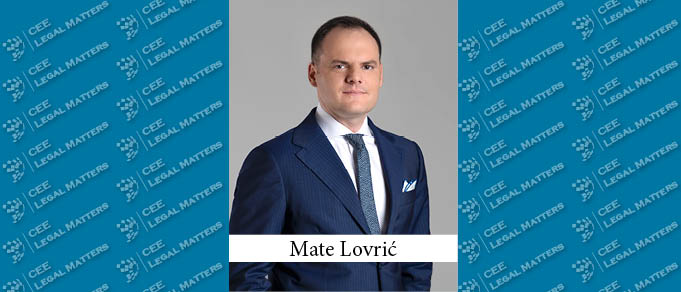Croatia's economic outlook is on the rise, with improvements in mergers and acquisitions activity compared to last year according to Lovric Novokmet & Partners Partner Mate Lovric who discusses the positive trends in GDP growth, investments, and key sectors like energy and tourism that are driving this upward trajectory.
"Compared to 2023, things are looking better," Lovric begins. "This year is stronger in terms of mergers and acquisitions. Last year we saw a much slower M&A year – now, we see positive updates." Lovric goes on to say that, in 2023, "Croatia experienced solid GDP growth, being the second country in the EU with a 2.8% increase and this trend is continuing in 2024 – investments have risen, bolstered by substantial EU grants. There are large infrastructure projects underway, such as rail developments, and significant investments in hospitality," he reports.
Highlighting the hottest sectors in Croatia right now, Lovric notes that "energy, including solar power, and tourism continue to lead the way. Indeed, we are attracting a lot of EU funds and investments in these areas. The overall outlook, particularly from an M&A perspective, is very promising." In fact, Lovric reports his team has "seen more M&A deals in the first half of this year than throughout all of 2023. This positive trend is also echoed by other M&A professionals and advisors – we are working on more deals and have a better overall outlook for the year."
Specifically, focusing on the tourism sector, Lovric reports that "there are new hot spots on the market where investors are exploring quasi-time-share concepts. These initiatives are attracting considerable professional attention and could become significant for the tourism sector, however, they are still on somewhat shaky legal grounds, which we are closely monitoring."
Taking a step back and looking at the big picture, Lovric reports that the political climate is playing a big role. "This year is a super-election year in Croatia, which definitely impacts businesses, especially those involving the state. We already had parliamentary elections and now have EU elections, with local elections coming up – this political activity is driving Croatia’s GDP growth, and we have seen public servants' salaries, including those of judges and clerks, increase." This comes as a welcome change given since Lovric reports that, last year, they "experienced a significant court strike that severely affected the legal market. It underscored the importance of the courts for the economy, impacting M&A deals, company setups, mortgage registrations, etc."
Overall, Lovric says that Croatia is experiencing a long period of political stability. "We have a continuity government for the third term in a row – it’s a centrist government with some right-wing elements. This political stability is beneficial for business, contributing to 12 consecutive quarters of GDP growth, and counting." According to Lovric, this positive trend is expected to continue, enhancing investor confidence. "Private equity funds have regained access to liquidity and, with higher interest rates becoming more normalized, both investors and sellers are more ready to engage in transactions. The overall level of tension decreased significantly compared to last year and business is running smoothly," Lovric concludes.






















